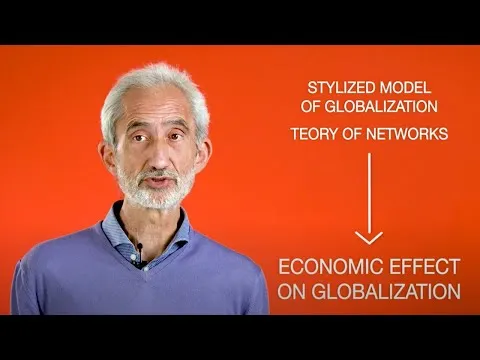Build Strong Local Ties if You Want to Become Global
Imagine an Italian car manufacturer that buys an important input from a Japanese firm (say, traditional batteries). It then learns about the existence of a type of battery that can be charged efficiently, which is manufactured by an American firm that produces solar panels. The Italian and American firms thus get involved in a partnership to produce a cheap electric car, whose battery is charged by solar energy. To produce those batteries, lithium is needed, which is supplied by an Australian firm that also sells it to a Chinese car producer. By sharing that common Australian supplier, the Italian and Chinese car manufacturers develop some trust, which leads them to launch a joint venture aimed at producing jointly a car for the massive Chinese market.
The example shows that, when globalization takes off, it does so very fast, as new global links allow the creation of still more new links and so on. Globalization feeds on itself. That's one of the two main conclusions of a study by Fernando Vega Redondo and Georg Duernecker on the features of networks that lead to globalization, the other one being that a well-rooted local network is a necessary prerequisite for globalization.
Vega Redondo and Duernecker construct a stylized model of globalization that, building on the booming theory of networks, develops this and many other insights related to the process of economic globalization.
As new connections are formed through existing ones, too much local cohesion (i.e too many inward-looking links) can be detrimental to globalization. For, in this case, the partners/friends of your partners tend to be already partners and hence they do not open new opportunities. But, in a crucial sense, some cohesion is also needed for globalization to take off, because in economic relationships trust is key in the formation of new links and trust only develops if those new links are well supported by pre-existing relationships. Thus, a sufficient degree of cohesiveness is needed for the network to expand early on and eventually become truly global.
Economic globalization is modeled as a situation where economic agents (say firms), even if far away in space (say, geographical, cultural or knowledge space) are connected through short paths in the social network. And in this network, two agents are said to be connected if they are involved in an economic relationship such as trade, a partnership, an investment and so on, through which information or, more generally, knowledge can flow.
"In much of the empirical growth literature trade openness (the volume of foreign trade relative to GDP) is postulated as a measure of globalization", Prof. Vega Redondo says, "and is often highlighted as an important source of growth. Our empirical analysis shows that, on the contrary, a much better measure of globalization is network-based. In essence, it is a measure of how far a country is from other countries in the world trade network".
Georg Duernecker, Fernando Vega Redondo, Social Networks and the Process of Globalization, forthcoming in The Review of Economic Studies, doi: 10.1093/restud/rdx054
Why Globalization Starts With Strong Local Ties
